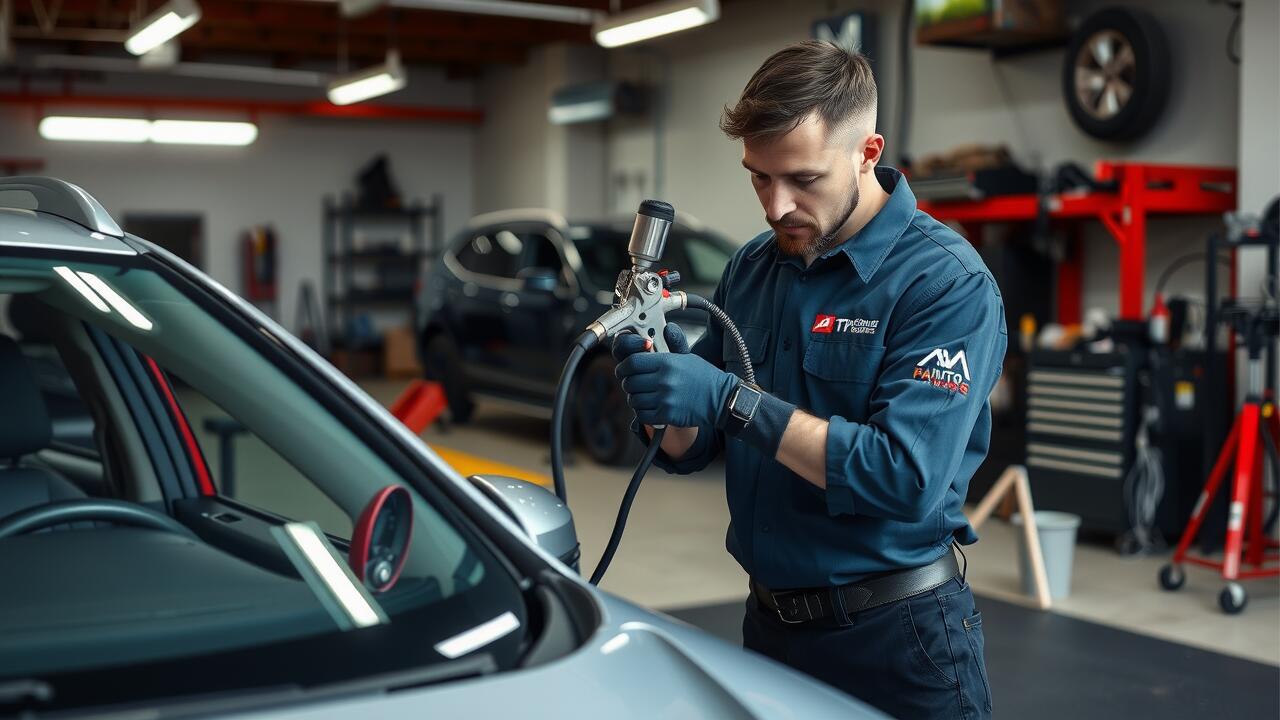
Repairing Door Dings
Repairing door dings can be a straightforward process, especially with numerous options available for car owners. Many individuals opt for DIY methods, utilizing tools such as a hairdryer, dry ice, or specialized dent removal kits. These approaches can be cost-effective and allow for quick fixes without the need to visit a professional shop. However, successful removal often depends on the severity and location of the ding.
For those who prefer a more polished outcome, professional door ding removal services are available. Trained technicians possess the expertise to assess damage and employ techniques that restore the vehicle’s appearance without affecting the paint job. This option may be more expensive but often yields better results, especially for larger dings or those in difficult-to-reach areas.
DIY vs Professional Solutions
For many car owners, DIY methods for door ding removal can be appealing due to the potential cost savings. Various tools and techniques, such as suction cups and hair dryers, are readily available online. Many people find success with these methods, especially for small dents. Online tutorials can guide individuals through the process, making it seem manageable with a little patience and care.
Professional solutions to door ding removal are often preferred for those seeking guaranteed results. Certified technicians can assess the damage and employ specialized tools, ensuring proper repair without harming the vehicle's paint. Many auto body shops offer paintless dent repair services, which can efficiently restore a vehicle’s original appearance. This option may come with a higher price tag, but the quality of work and assurance often outweigh the cost for many vehicle owners.
Reporting Door Dings
Reporting a door ding is an important step in maintaining the value of your vehicle. If you notice a door ding, assessing the damage and deciding whether to report it is crucial. While minor dings may seem inconsequential, they can accumulate and lead to larger issues if left unaddressed. Documenting the incident with photographs and gathering details about where and when it occurred can help if you decide to file a claim later.
If the damage is significant enough, or if you're considering Door Ding Removal through a professional service, notifying your insurance company might be necessary. Depending on your policy, coverage for such damages might apply. Keep in mind that filing a claim can have consequences on your insurance premiums, so it's wise to weigh the costs and benefits before proceeding.
When to Notify Your Insurance Company
If you experience a door ding that causes significant damage, it may be time to notify your insurance company. Generally, notifying your insurer is advisable when repair costs exceed your deductible. This helps ensure that you benefit from any policy coverage, especially if the damage compromises the vehicle’s value or functionality.
In some cases, your insurance provider may recommend Door Ding Removal services. These specialists can help restore your car to its previous condition, often without impacting your premiums. It’s essential to weigh the cost of repairs against your deductible and current premium rates before making a claim.
Impact of Door Dings on Vehicle Value
The presence of door dings can significantly affect the overall value of a vehicle. Investing in Door Ding Removal becomes a priority for many car owners looking to maintain their vehicle's aesthetic appeal. A vehicle's exterior condition plays a critical role in pricing, and potential buyers often see any imperfections as red flags. A door ding can suggest neglect, leading to lower offers or extended time on the market.
In addition to buyer perception, the actual financial repercussions of door dings can be considerable. Even small dings can reduce a vehicle's resale price, impacting how much a seller ultimately receives. Many dealers often account for these imperfections by offering lower trade-in values, making Door Ding Removal an essential part of preparing a vehicle for sale. Addressing these small damages proactively can help ensure the vehicle retains as much of its value as possible.
How Dings Affect Resale Price
The presence of door dings can significantly impact the resale value of a vehicle. Buyers often perceive dings and dents as indicators of neglect or poor maintenance. Even minor imperfections can lead to lower offers, as potential purchasers may worry about the car's overall condition. A clean and well-maintained exterior can enhance appeal, while visible dings can detract from it.
Investing in door ding removal before selling a vehicle can be a wise decision. By addressing these imperfections, sellers can present a more polished image and may command a higher price. Fixed dings not only improve aesthetics but also instill confidence in buyers regarding the vehicle's upkeep. As a result, the upfront cost of repair may ultimately lead to a better return during the sales process.
FAQS
What is a door ding?
A door ding is a small dent or scratch that occurs on a vehicle's door, typically caused by another car door hitting it or by contact with stationary objects.
Am I legally liable for a door ding I caused?
If you caused the door ding through negligence or intentional damage, you may be held liable for the repairs. However, if it was accidental, liability can depend on the circumstances and your insurance policy.
Should I report a door ding to my insurance company?
You should notify your insurance company if the damage is significant or if you believe someone else may file a claim against you. For minor dings, it may not be necessary to report.
Can I fix a door ding myself?
Yes, many door dings can be repaired at home using DIY methods, such as using a hairdryer and compressed air, or specialized tools. However, for more complex damages, professional assistance is recommended.
How does a door ding affect my car's resale value?
Door dings can negatively impact a vehicle's resale value as they may signal poor care or maintenance. The extent of the impact largely depends on the size, location, and visibility of the ding.

